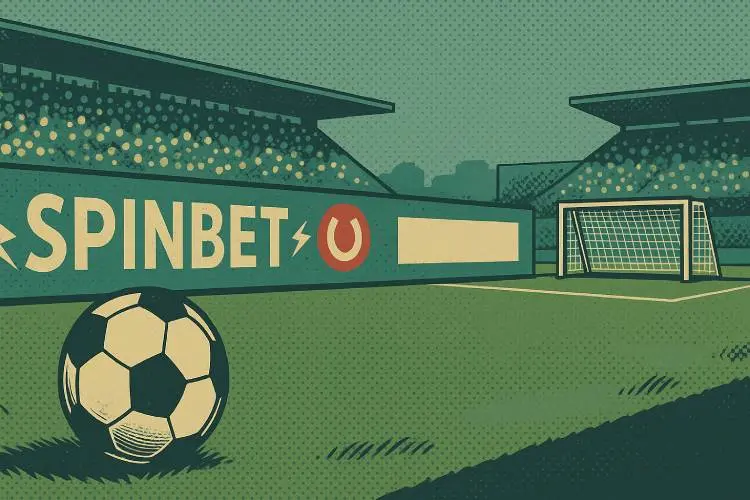English Football at Crossroads Amid Looming Ban on Gambling Sponsorship


For years, gambling companies have played a prominent role in English football. Logos of sportsbetting casinos dominate Premier League kits, advertising boards, and even digital content. These partnerships have generated millions for clubs, particularly those outside the top tier of commercial sponsorships. However, that longstanding relationship is about to change with new restrictions on the horizon.
In April 2023, Premier League clubs agreed to a voluntary ban on front-of-shirt gambling sponsors starting with the 2026 season. While clubs can still sign new deals until the deadline, the announcement marked a significant turning point. This decision wasn’t made in isolation; it followed growing pressure from fans, politicians, and campaign groups concerned about the visibility of gambling in football and its influence on vulnerable groups, particularly young supporters.
The Premier League’s Voluntary Ban and Industry Impact
Though voluntary, the decision to phase out front-of-shirt betting ads reflects broader concerns about the social impact of gambling in sport. Critics have long argued that gambling promotions are too deeply embedded in football culture. In response, several advocacy campaigns have called for outright bans on gambling advertising, citing links between heavy promotion and problem gambling rates.
As clubs look to capitalize before the ban takes effect, many are reportedly increasing their sponsorship rates, knowing this may be the last window for such high-paying deals. This has led to a spike in negotiations with gaming firms eager to maintain brand visibility in English football. Championship clubs aiming for promotion are especially active, eyeing short-term deals to take advantage of their potential future exposure in the Premier League.
Industry experts like Alan Alger have noted that these clubs are positioning themselves for one final payday. Still, once the 2026 deadline arrives, clubs must find alternative ways to attract sponsorship revenue.
White Label Sponsorships Under Scrutiny
While the ban targets front-of-shirt ads, other sponsorship forms remain in play. Gambling brands are now pivoting toward sleeve sponsorships, LED pitchside ads, and digital campaigns. However, even these options now face new scrutiny, particularly regarding white label sponsorships.
White label agreements allow offshore gambling companies, often licensed in jurisdictions like Curacao, to partner with English clubs using intermediary firms. These arrangements have drawn concern from the UK government and regulators, who question their legality and transparency. In 2024, Gambling Minister Baroness Twycross launched a formal inquiry into white label deals and their role in football sponsorship.
The UK Gambling Commission and Department for Culture, Media and Sport (DCMS) are both examining whether these partnerships meet UK legal standards. Critics argue that these deals can harm the sport's reputation, especially if clubs are linked to unregulated or poorly overseen operators. Many in the industry expect this inquiry to result in further restrictions on gambling involvement in football.
Efforts Toward Responsible Promotion
In response to mounting criticism, the Premier League and the English Football League have introduced new codes of conduct. These guidelines, rolled out in 2024, aim to promote more socially responsible gambling promotions by limiting exposure to minors, encouraging responsible play, and reinvesting some sponsorship funds into community initiatives.
However, critics remain skeptical. While these codes may reduce some more visible risks, they fall short of the comprehensive reforms demanded by campaigners. For many, the only acceptable solution is a full ban on gambling advertising in football.
Financial Ramifications for Clubs
The potential loss of gambling sponsorship revenue presents a significant challenge, especially for smaller and mid-tier clubs. In the 2024–25 season alone, betting sponsors contributed over $135 million to Premier League clubs. For some teams, these deals represent a large share of their commercial income.
Larger clubs, which often partner with multinational brands like Nike or Fly Emirates, are better positioned to absorb the impact. But for clubs operating on tighter margins, the shift could widen the financial gap between the Premier League’s elite and everyone else.
Some clubs have already begun transitioning away from gambling sponsors. Bolton Wanderers cut all ties with betting firms in 2021, citing community responsibility. Newcastle United has also started prioritizing non-gambling partners. These moves reflect a growing awareness among clubs that they may need to align their sponsorship strategies with evolving public expectations.
The Future of Gambling in Football Sponsorship
The upcoming ban on shirt-front gambling sponsorships is just one part of a larger shift in how gambling and football intersect. While some predict that gambling firms will remain present in the game through alternative marketing channels, others believe the changes signal a slow but steady withdrawal of gambling from football's commercial space.
Clubs will likely continue seeking new revenue models. Sponsorships from sectors like fintech, health, and e-commerce are already becoming more common, and some expect this trend to accelerate. In the meantime, gambling companies must get more creative with branding strategies, focusing on sleeve sponsorships, digital placements, and other less-regulated spaces.
Regulators and campaigners are still watching closely. Any sign of rule-bending could prompt stricter enforcement, particularly if public concern over gambling’s role in football continues to grow.
A Cautious Transition Ahead
English football is at a pivotal moment. The Premier League’s upcoming ban, government inquiries, and rising public pressure all point toward a future with tighter controls on gambling partnerships. While these changes may protect fans from overexposure, they also bring financial uncertainty for clubs that have relied on such income for years.
As the landscape shifts, clubs must make tough decisions about who they partner with and how they fill the revenue gap. The outcome could reshape the sponsorship model in English football for good, or at least force a long-overdue adjustment.
Was this article helpful?
